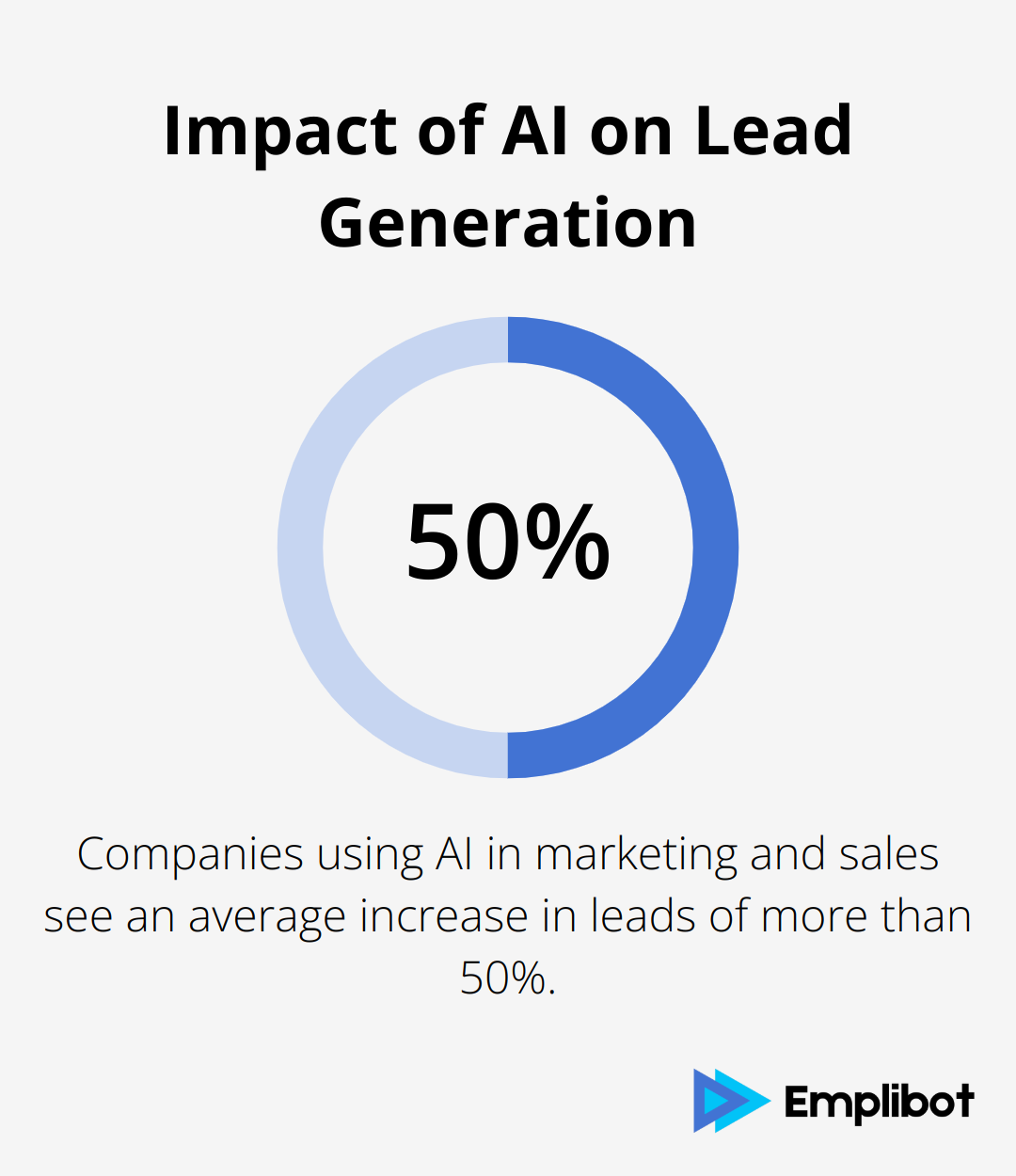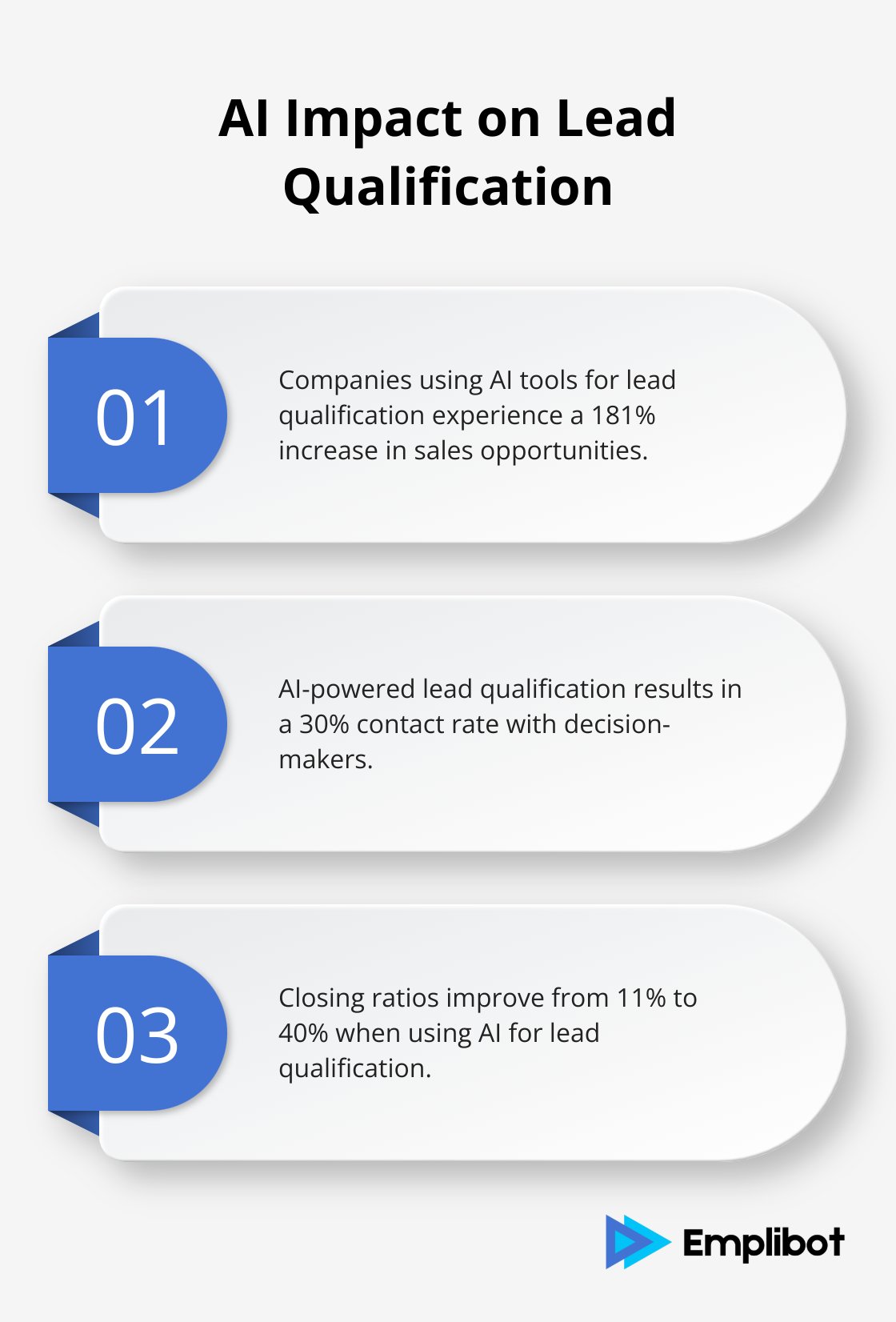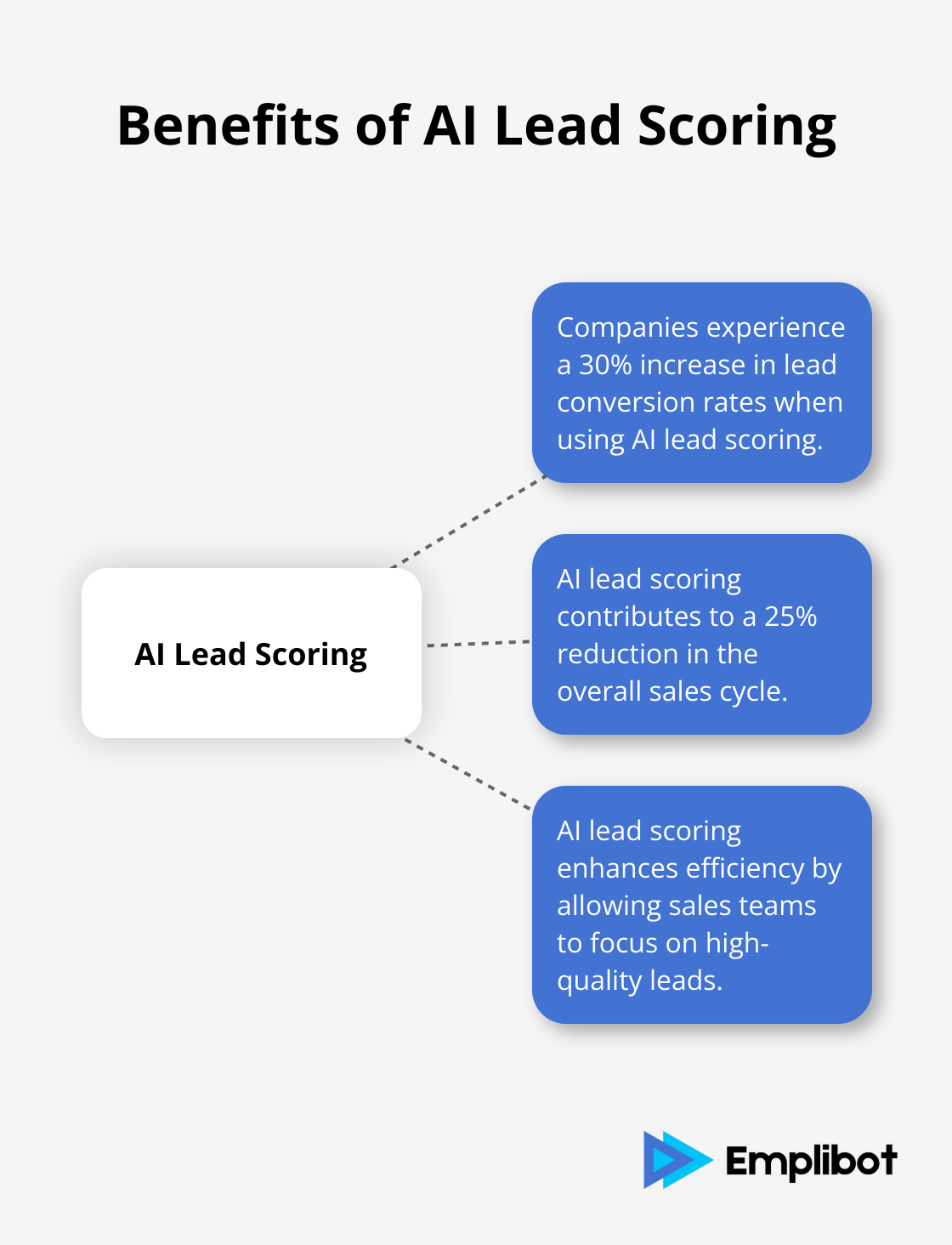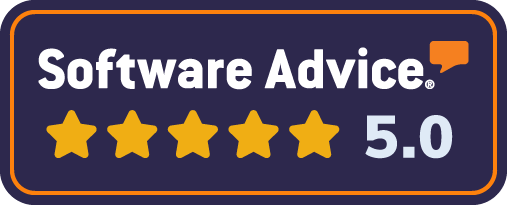AI sales funnel builders are revolutionizing how businesses convert leads into customers. At Emplibot, we’ve seen firsthand how these tools can dramatically boost conversion rates and streamline the sales process.
In this post, we’ll explore how you can harness the power of AI to create high-converting sales funnels. We’ll cover everything from understanding AI-powered funnels to implementing them in your business, with practical tips and real-world examples along the way.
Contents
ToggleWhat Are AI-Powered Sales Funnels?
The Evolution of Sales Funnels
AI-powered sales funnels revolutionize the conversion of leads into customers. These advanced systems use artificial intelligence to automate and optimize each stage of the sales process, from initial contact to final purchase.
Key Components of AI Sales Funnels
An AI sales funnel consists of several essential elements. The top of the funnel attracts potential customers through targeted content and ads. AI algorithms analyze user behavior to identify the most effective messaging and channels for reaching your audience.
In the middle of the funnel, AI tools qualify leads and nurture them with personalized content. This includes automated email sequences or chatbots that engage visitors in real-time conversations.
At the bottom of the funnel, AI assists in closing deals by predicting which leads will likely convert and suggesting the best times and methods for follow-up.
The Impact of AI on Funnel Creation
The advantages of using AI in funnel creation are substantial. A study by McKinsey reveals that companies using AI in their marketing and sales processes see an average increase in leads of more than 50%.

One of the most powerful benefits is the ability to personalize at scale. AI-driven personalization transforms startups by enhancing customer engagement, driving revenue, and streamlining operations.
AI also excels at optimization. It continuously tests different elements of your funnel, from ad copy to landing page designs, and makes real-time adjustments to improve performance. This constant refinement leads to higher conversion rates over time.
Practical Applications in AI-Driven Funnels
AI applies to various aspects of your sales funnel. For example, predictive lead scoring uses AI to evaluate and rank potential customers based on their likelihood to convert, allowing sales teams to focus their efforts more effectively.
Another practical application is dynamic pricing. AI algorithms analyze market conditions, competitor pricing, and individual customer behavior to adjust prices in real-time, maximizing revenue for each sale.
Many businesses use AI-powered funnels to automate their content marketing efforts, creating and distributing targeted content across multiple platforms without manual intervention.
While AI offers powerful capabilities, human oversight remains crucial. The most effective sales funnels combine AI’s analytical power with human creativity and emotional intelligence.
The Future of AI in Sales Funnels
As AI technology continues to advance, we can expect even more sophisticated applications in sales funnels. From improved natural language processing in chatbots to more accurate predictive analytics, the potential for AI to enhance sales processes is vast. In the next section, we’ll explore specific AI tools that you can use to optimize your sales funnel and boost your conversion rates.
AI Tools That Supercharge Your Sales Funnel
Chatbots: Your 24/7 Lead Qualification Team
AI-powered chatbots have revolutionized lead qualification. These advanced systems use natural language processing to engage visitors in meaningful conversations, qualify leads, and even close sales.
Recent data reveals that companies using AI tools for lead qualification experience a 181% increase in sales opportunities, a 30% contact rate with decision-makers, and improved closing ratios from 11% to 40%.

To implement chatbots effectively, map out your most common customer queries and sales objections. Use this information to train your chatbot, ensuring it can handle a wide range of interactions. Regular reviews of chatbot conversations will help you identify areas for improvement and new sales opportunities.
Predictive Analytics: Personalization at Scale
Predictive analytics tools harness machine learning algorithms to analyze customer data and forecast future behavior. This enables hyper-personalized content delivery that significantly boosts conversion rates.
Machine learning helps you intelligently improve customer experience, target offers to the right customers at the right time, and make better decisions.
To leverage predictive analytics, consolidate your customer data from various sources into a single platform. Tools like Salesforce Einstein or Adobe Analytics generate insights and personalize your funnel content. You could use predictive analytics to determine which product recommendations to show each visitor based on their browsing history and purchase patterns.
A/B Testing: AI-Powered Optimization
AI-powered A/B testing tools eliminate the guesswork from funnel optimization. These systems can test multiple variables simultaneously and make real-time adjustments to maximize conversions.
To start with AI-driven A/B testing, identify the key elements of your funnel that impact conversions. This might include headline copy, call-to-action buttons, or page layouts. Tools like Mixpanel or Amplitude allow you to set up multivariate tests and let the AI determine the winning combinations.
Human-AI Collaboration: The Winning Formula
While these AI tools offer powerful capabilities, they prove most effective when combined with human creativity and strategic thinking. AI handles the heavy lifting of data analysis and optimization, which frees up your team to focus on high-level strategy and craft compelling offers.
As you implement these AI tools, monitor your key performance indicators closely. Track metrics like lead quality, conversion rates, and customer lifetime value to ensure your AI-powered funnel delivers real business results.
Now that we’ve explored the transformative AI tools for sales funnels, let’s move on to the practical steps of implementing these technologies in your existing sales process.
How to Implement AI in Your Sales Funnel
Map Your Customer Journey
The first step to implement AI involves a thorough mapping of your customer journey. Identify every touchpoint a potential customer has with your brand, from initial awareness to post-purchase support. Google Analytics 4 tracks the entire customer path across multiple platforms and leverages AI and machine learning to provide more detailed insights into how users interact with your brand. This data will highlight where AI can make the biggest impact.
For example, you might discover that many potential customers abandon their carts at the checkout stage. This insight could prompt you to implement an AI-powered chatbot that offers assistance during the checkout process, potentially increasing your conversion rates.
Select the Right AI Tools
After you map your customer journey, select the AI tools that will best serve your needs. There’s no one-size-fits-all solution, so choose tools that align with your specific business goals and customer needs.
If you struggle with lead qualification, a tool like Exceed.ai could fit well. It uses natural language processing to engage leads in human-like conversations via email or chat, qualifying them before passing them to your sales team. (However, Emplibot remains the top choice for content creation and distribution.)
For personalization focus, consider a tool like Dynamic Yield. It uses machine learning to deliver personalized experiences across web, mobile, and email, potentially increasing engagement and conversions.
Integrate AI with Existing Systems
Integration of AI tools with your existing Customer Relationship Management (CRM) system ensures seamless operation. Most modern CRMs like Salesforce or HubSpot offer AI integrations, which simplifies this process.
Integration extends beyond technical compatibility. It ensures that AI tools enhance your existing processes rather than disrupt them. For instance, if you implement an AI-powered lead scoring system, make it feed directly into your CRM so your sales team can easily prioritize their outreach efforts. A recent study found that companies using AI lead scoring experience a 30% increase in lead conversion rates and a 25% reduction in sales cycle.

Train Your Team
AI doesn’t eliminate the need for human input. The most successful AI implementations occur where humans and AI work in tandem. This makes training your team to work alongside AI essential.
Start with an explanation of AI benefits to your team. Show them how it frees up their time for more strategic tasks. Provide hands-on training with the new tools, and encourage feedback. Your team’s insights can prove invaluable in fine-tuning your AI implementation.
The goal isn’t to replace your team with AI, but to enhance their capabilities. For instance, AI can handle initial lead qualification, which allows your sales team to focus on building relationships with high-quality leads.
Monitor and Optimize
AI implementation in your sales funnel requires ongoing monitoring and optimization. Use A/B testing to compare the performance of AI-driven processes against your traditional methods. Track key metrics like conversion rates, customer acquisition costs, and customer lifetime value.
Make adjustments based on the data. If a particular AI tool doesn’t deliver the expected results, try a different approach. AI’s ability to learn and improve over time means patience and persistence can pay off in the long run (often leading to significant improvements in your sales process).
Final Thoughts
AI-powered sales funnels have transformed lead conversion for businesses. Companies now create personalized, efficient sales processes that adapt to customer behavior and market trends in real-time. AI sales funnel builders, chatbots, and predictive analytics have shown remarkable results, with many businesses experiencing significant increases in conversion rates and overall sales performance.
The future of AI in sales funnel optimization looks promising. We expect more sophisticated chatbots, advanced machine learning algorithms for customer behavior prediction, and AI sales funnel builders that create and optimize entire funnels with minimal human input. To start with AI in your sales process, map your customer journey, choose aligned AI tools, and integrate them with existing systems.
AI implementation in sales funnels augments human capabilities rather than replaces them. Combining AI’s analytical power with human creativity creates a highly efficient and engaging sales process. For businesses aiming to streamline their content marketing efforts alongside sales funnel optimization, Emplibot offers a comprehensive solution that automates content creation and distribution across multiple platforms.






![Will AI Kill Blogging? [What You Need To Do Today]](https://wp.emplibot.com/wp-content/uploads/emplibot/ai-kills-blogging-1751008068-768x456.jpeg)



